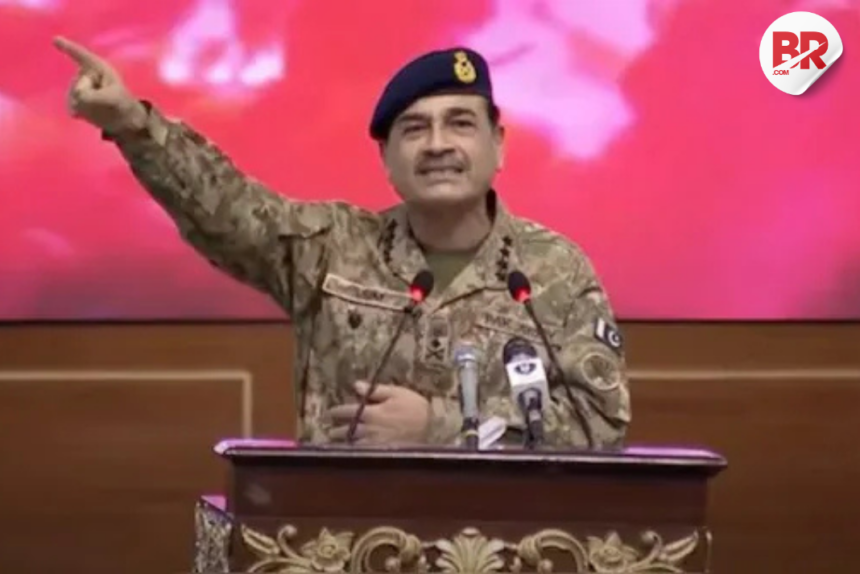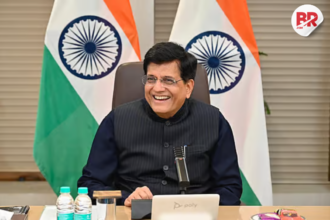
A brutal terror attack in Pahalgam has left India mourning the loss of innocent lives.
While investigations continue, all eyes are now on one man: Pakistan Army Chief Gen. Asim Munir. Days before the attack, he delivered a fiery speech about Kashmir. Was it just talk—or a match tossed into a powder keg?

Did the Speech Pour Fuel on Fire?
In a widely reported address, Pakistan Army Chief Gen. Munir used strong language to describe the situation in Kashmir. He mentioned the “two-nation theory,” cultural identity threats, and portrayed the region as a flashpoint in a supposed civilizational battle between Hindus and Muslims.
His tone? Stern. His message? Controversial. And the timing? Uncomfortably close to the Pahalgam attack.
Now, India’s security experts and policymakers are asking a hard question: Could such rhetoric have inspired militants or escalated existing tensions?
Also Read General Munir Reaffirms Controversial ‘Two-Nation Theory’—Is Pakistan Stuck in the Past?
Why This Matters for Everyday Indians
For most people, this isn’t about geopolitics—it’s about safety. The fear of another attack, the pain of watching headlines filled with loss, and the feeling that words from across the border can spark real violence here. That’s the real worry.
And here’s the kicker: Extremist groups often seek any justification for violence. When a figure as influential as the Pakistan Army Chief paints Kashmir as a battleground for identity, it’s not hard to imagine radical factions taking it as a green light.
Connecting the Dots—Or Not?
Let’s be clear: There’s no solid proof—yet—that Gen. Munir’s speech directly led to the Pahalgam violence. Terror attacks are rarely spontaneous. They’re planned. Timed. Coordinated.
Still, the proximity of his comments to the attack raises eyebrows. At the very least, such speeches risk giving ideological cover to extremists or increasing cross-border infiltration attempts along the Line of Control (LoC).
Think of it like this: If you shout “fire” in a crowded theatre, even if there’s no flame, panic spreads. And in South Asia, Kashmir has always been that tinderbox.
India’s Next Steps
The Indian government swiftly condemned the Pahalgam attack and vowed justice. But beyond words, action is expected. Here’s what experts suggest:
- Boost intelligence networks to detect threats early.
- Fortify the borders, especially infiltration-prone areas.
- Counter radicalization with education, economic upliftment, and strong community engagement.
But let’s not forget—this isn’t just a fight against armed groups. It’s a fight against ideas that turn neighbors into enemies.
Why the Speech Still Matters
Even if Gen. Munir didn’t intend to incite violence, the Pakistan Army Chief plays a powerful symbolic role. His words can echo far beyond a podium. That’s why accountability and caution matter.
India has raised concerns at diplomatic levels, and this incident is likely to strain already fragile peace talks between the two nations.
But here’s the tough truth: De-escalation requires both silence and strength—to avoid provocation, but be ready for protection.
Looking Ahead
The Pahalgam tragedy isn’t just a headline. It’s a reminder of how rhetoric can ripple into real life. As India mourns, it must also prepare—not just for the next threat, but for a way forward that includes peace, resilience, and clear-eyed strategy.
Gen. Munir’s words may just be one piece of the puzzle. But it’s a piece we can’t afford to ignore.
Also Read Pahalgam Attack: Terrorist Sketches Released—A Manhunt Like No Other!












